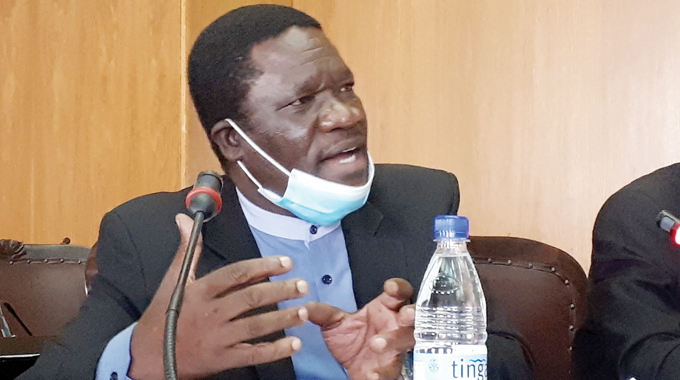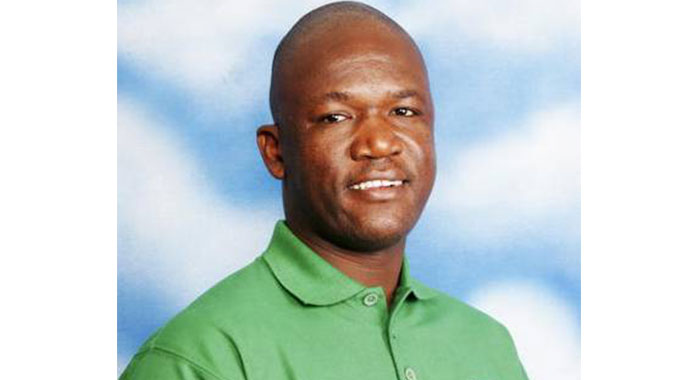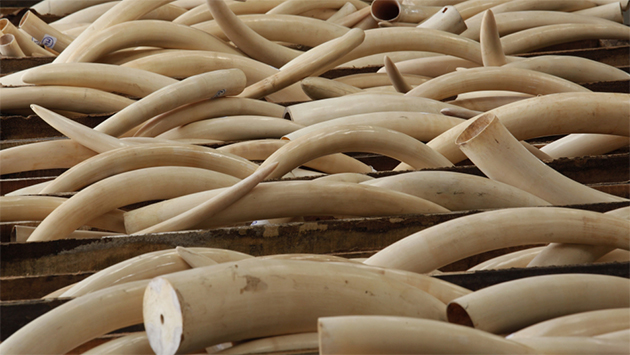Zimbabwe Defence Forces vital cog for modernisation

Harare Bureau
The Zimbabwe Defence Forces are a vital cog in the ongoing national socio-economic modernisation and development of the country and Government will continue to capacitate its service personnel through monetary and non-monetary incentives, President Mnangagwa has said.
The Head of State and Government and Commander in Chief of the ZDF said this yesterday while delivering a keynote address during the 43rd commemoration of the ZDF in the giant National Sports Stadium in Harare.
The main commemoration in Harare drew a capacity crowd to the giant National Sports Stadium.
“We are gathered here once again to celebrate yet another year of excellence by the Zimbabwe Defence Forces (ZDF), in the execution of their mandate of safeguarding our independence, national sovereignty, territorial integrity, national interests as well as rich liberation and cultural heritage.
‘‘The theme of this year’s celebrations, ‘Zimbabwe Defence Forces: Creating a Conducive Environment for the Achievement of Vision 2030’ is in recognition of the importance of a peaceful and tranquil environment for sustainable development.
In this regard, the Zimbabwe Defence Forces remains a vital cog in the ongoing national socio-economic modernisation and development of our great motherland, Zimbabwe,” he said.
“Since its creation, the ZDF has always been a “People’s Force”, which has effectively defended our beloved country and has guaranteed our nationhood, in the face of adversity and aggression from detractors.
The ZDF’s priority and principal vision is transformation through modernisation in such areas as training and manpower development, among others.”
He said as Commander in Chief of the ZDF, he made a deliberate decision to heighten the pace of the modernisation and capacitation of its members.
“A broad array of monetary and non-monetary incentives have been extended to members of the ZDF. Additionally, the transport needs of our Defence Forces are being attended to following the ongoing procurement of an assortment of vehicles, including over 200 buses.
“The acquisition of versatile troop carrying and modern fighting vehicles, among other operational vehicles, is set to further enhance organisational mobility within the ZDF,” said President Mnangagwa.
“To improve accommodation facilities for ZDF personnel, Government is implementing various projects such as the Dzivarasekwa and Khumalo Housing Projects.
“Other housing units are being constructed at Imbizo and Jason Ziyaphapha Moyo Air Force Base. To date, the Dzivarasekwa Housing Project has 201 completed housing units and others at different stages of completion.
“The Imbizo Institutional Housing Project has 44 units at different stages of completion and an additional 30 units scheduled to be completed by year end. To accelerate the completion of targeted units, my Government has contracted private companies to construct a total of 260 blocks of flats.
“The health needs of members of the ZDF remain a priority area. In this regard, the completion of the Manyame Referral Hospital is being accelerated in our quest to ensure that specialist medical services are available to our Defence Forces.”
He commended the ZDF Health Services Department for the free health services which continue to be availed to disadvantaged communities.
“Similarly, the Construction Regiment has deployed artisans to various ministries and departments in infrastructure development projects. These include the construction of school blocks and clinics within various rural communities across all provinces.
“By so doing, the ZDF is living up to our national development philosophy, Nyika inovakwa nevene vayo. Ilizwe lakhiwa ngabanikazi balo. Makorokoto, Amhlophe. Congratulations.”
The President said ZDF has progressively transformed into a dependable, agile, hard-hitting force, capable of containing any threat as evidenced by its robust, relevant and responsive training as well as personnel development programmes.
“Further, it is commendable that the ZDF has maintained sound and coordinated working relations with other security agencies for the notable successes recorded in the sphere of civil-military relations. In addition, our Defence Forces are playing their part towards sustainable regional and international peace and security,” he said.
He said the Zimbabwe National Defence University had now opened its doors to civilian students with its faculties and disciplines being broadened to include skills gaps and priorities, with a bias towards engineering and aviation programmes.
“Meanwhile, the university has also introduced a degree programme in Disaster Management to enhance knowledge and national capacity in disaster response, mitigation and recovery. In line with the Heritage-Based Education 5.0 Model, the Zimbabwe National Defence University is being capacitated to play its part in championing the industrialisation and modernisation of Zimbabwe,” said President Mnangagwa.
He commended the ZDF recruitment policy which ensures gender parity which accommodates male and female in line with their talents, dreams and potential.
The ZDF, said President Mnangagwa was benefiting from training exchange programmes with countries in the Sadc region and beyond.
“Far afield, I thank the governments of the People’s Republic of China, the Russian Federation, India, Pakistan, Indonesia and Malaysia for enriching partnerships with regards to the training needs of the Zimbabwe Defence Forces. Our country is grateful for this cooperation and stands ready to play its part towards advancing global peace and security.
In that context, a total of 36 ZDF officers are deployed to United Nations Missions, while others are deployed under the auspices of the African Union. As a member of the African Union Peace and Security Council, Zimbabwe is also contributing to ongoing initiatives in search of lasting solutions to instability, threats of terrorism and violent extremism on our African continent, in the spirit of ‘African solutions to African problems’,” said President Mnangagwa.
“Our country condemns wanton Western aggression and opposes the use of sanctions as a foreign policy tool under the notion ‘might is right’. We continue to call for a global system based on the principles of the United Nations Charter and equality of nations under a multi-polar global system.”
He bemoaned the presence of landmines and other explosive remnants of the liberation war along the country’s borders saying they continue to pose a threat to human and animal life.
“Further, the landmines are an impediment to the full access and utilisation of our land by affected communities. Demining operations are taking place in all the affected areas along our country’s borders with Mozambique and Zambia, covering Mashonaland Central, Mashonaland East, Manicaland and Masvingo Provinces. We remain determined to realise a landmine-free Zimbabwe by 2025,” he said.
The Second Republic, he said, took a deliberate decision to honour all the heroes who contributed during the different periods of the liberation struggle and he said the Government will continue to improve the welfare of the veterans of the liberation struggle, their dependants, and those of departed heroes and heroines.
He said it was equally important that veterans of the liberation struggle and their dependants were allocated land and directed relevant Government departments to ensure that they get land.
“To expedite the operationalisation of the National Heroes Act, a five member Heroes Dependants Assistance Board has since been appointed. As they discharge their functions and conduct a nationwide registration exercise for all dependants of heroes and heroines, no one and no place will be left behind,” he said.
He said his Government through the Veterans of the Liberation Struggle Act, has recognised the non-combatant cadres and War Collaborators as veterans of the liberation struggle and this saw the cadres being vetted.
Earlier, President Mnangagwa awarded independence medals to 13 non-combatant cadres while others were conferred with their honours at various provincial centres countrywide for their role during and after the liberation struggle.
Notable recipients include Zanu-PF Political Commissar Cde Mike Bimha, Zanu PF Chief whip, Cde Pupurai Togarepi, Transport and Infrastructural Development Deputy Minister Mike Madiro, Public Service, Labour and Social Welfare Deputy Minister Lovemore Matuke, Zanu PF Politburo member, Cde Kenneth Musanhi and Senator Omega Hungwe.
Earlier on Defence and War Veterans Minister Oppah Muchinguri-Kashiri said those who got awards were in line with their role during the liberation struggle where they helped in logistics and information dissemination.
She said the Government will continue capacitating the ZDF so that it remains abreast with modern and non-traditional threats that require up to date equipment.
“These include terrorism, extremism, drug abuse and human trafficking, climate change, global warming and violence,” said Minister Muchinguri-Kashiri.
She said one of the challenges ZDF was facing in assisting the Zimbabwe Republic Police was the porous borders that has led to smuggling of goods.
The event was attended by the First Lady Auxillia Mnangagwa, Vice President Constantino Chiwenga, Zanu-PF Second Secretary and Vice President Kembo Mohadi, cabinet ministers, traditional leaders, service chiefs and senior Government officials.












Comments